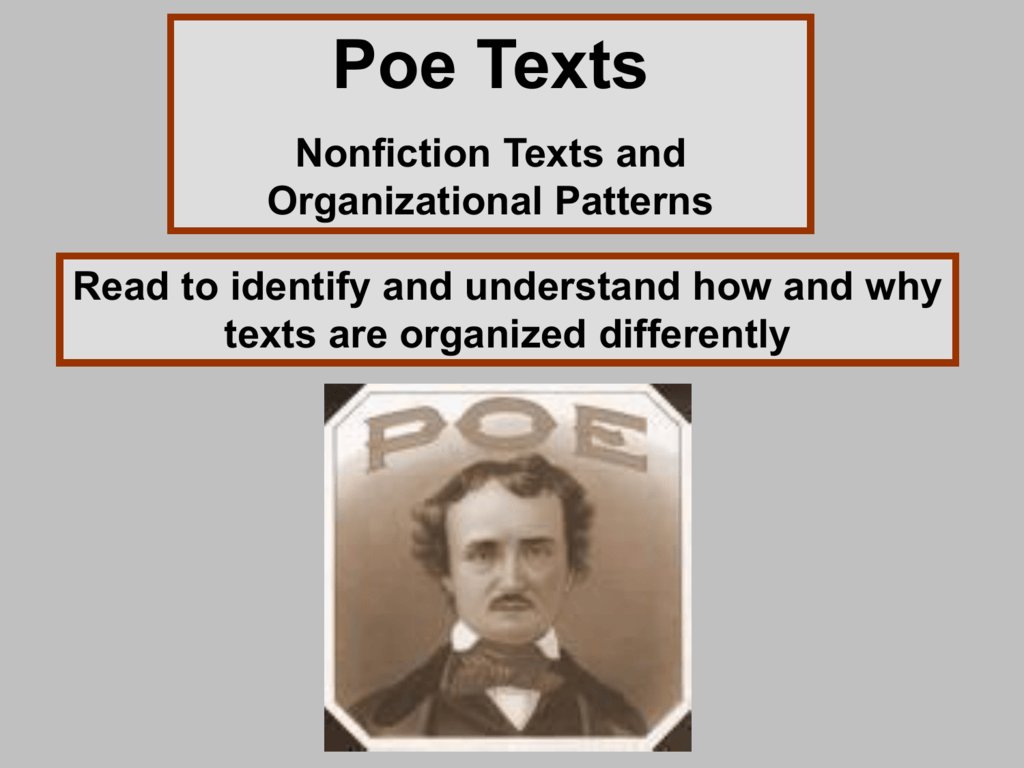

So, how much can we really trust him? More importantly, why is he holding things back? The narrator deliberately withholds information that he heard with his own ears. Love letter or conspiratorial letter, letter of betrayal or letter of mission, letter of summons or letter of distress, we are assured of but one thing: the Queen must not bring it to the knowledge of her lord and master. Ll this tells us nothing of the message it conveys. As Jacques Lacan points out in his famous seminar on the story: (73)Īrgh! The internal contents! That's what we've been waiting for all along, but too bad for us. "Oh yes!"-And here the Prefect, producing a memorandum-book, proceeded to read aloud a minute account of the internal, and especially of the external appearance of the missing document.
#POE ON NARRATOR POINT OF VIEW FULL#
For example, he gives us Dupin's full name, but only the initials of D- and G-, (Check out "Names" under " Character Clues" for some thoughts on the matter.)Īnd it sure would have been nice if he'd given us the actual dialogue instead of a really crummy summary in the following passage: (What, people don't do that anymore?) No, he's deciding what to tell us, and what to hold back. In other words, he isn't playing the conversations back like a tape recorder, or whatever kids use these days to record songs off of the radio. But, even in the third conversation, which is solely between the narrator and Dupin, the narrator doesn't say much.Įxcept that he's actually saying everything. It consists almost entirely of dialogue in three conversations. In fact, the narrative structure of "Letter" is unusual, even for Poe. In those stories (" The Murders in the Rue Morgue" and " The Mystery of Marie Roget"), the narrator provides much more of his voice and opinions than he does here, where he's basically a talking head reporting on other talking heads. This narrator is Dupin's roommate, and he also narrates the other two Dupin tales of detection. "The Purloined Letter" is told in the first person, by an unnamed narrator, who doesn't participate directly in any of the story's major action.


 0 kommentar(er)
0 kommentar(er)
